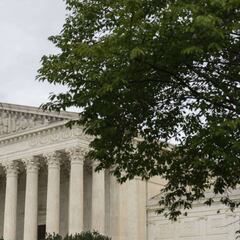How will Texas' new abortion law impact access and the cost of an abortion?
One of the most conservative and controversial abortion laws has gone into effect in Texas. How will this impact access and the cost of abortion in the state?


The Texas legislature has been hard at work this year, passing laws that many critics see as attempts to limit the rights of educators, women, and people of color.
A controversial abortion law passed last Spring went into effect in Texas on Wednesday, 1 September, after the Supreme Court ruled that it would defer to lower courts on the matter.
The law will ban "abortions from being performed or induced once a fetal heartbeat is detected" unless there is a medical emergency. The law does not make exceptions for cases of rape or incest, making it one of the most restrictive abortion laws in the United States.
A Texas law banning abortion as early as six weeks goes into effect today as the U.S. Supreme Court takes no action. https://t.co/lZF67HDU88
— Texas Tribune (@TexasTribune) September 1, 2021
The Lone Star state, which is quickly becoming a leader in the anti-choice movement, leads the nation in the number of children without health insurance, and has one of the highest maternal mortality rates.
How much does an abortion cost in Texas?
The new law could impact the prices of the procedure or medication.
According to the Pregnancy Center of the Coastal Blend, an abortion pill that can be “taken up to 10 weeks pregnant” normally in Texas costs around “$500-$675 but could be higher per provider.” All other procedures are more invasive and expensive but now will be outlawed as they are carried out after the six-week marker outlined in the legal analysis.
However, study after study has shown that limiting access to abortion does not actually lead to fewer abortions. It does, however, make the process of obtaining them more dangerous.
"Trust Women clinic in Oklahoma says it typically gets 3-5 calls from Texans per day. In the last 2 days, they’ve gotten 50-55 such calls.
— Rachel Maddow MSNBC (@maddow) September 2, 2021
'I’ve asked our physicians, 'Will you do an additional shift, so that we can see more of these Texas patients?'”"https://t.co/8lVBKoRJ1u
The Guttmacher Institute released a report in 2019 which showed that in the last decade's rates of abortion had decreased, but that the decline could not be attributed to the increasing "a number of state abortion restrictions" implemented in the South and Midwest. The report also found that "there was also no consistent relationship between increases or decreases in clinic numbers and changes in state abortion rates."
An overview of the restrictive law
The law known as the Texas Heartbeat Act bans abortion after a fetal heartbeat can be identified, which normally occurs around the sixth week of pregnancy.
Many women may not even know they are pregnant at the six-week mark, and in some cases, a fetal heartbeat cannot be identified this early in a pregnancy.
This law means that someone could have only two weeks to confirm the pregnancy and decide whether to evaluate their options.
Additionally, while the law states that “the pregnant woman has a compelling interest in knowing the likelihood of her unborn child surviving to full-term birth based on the presence of cardiac activity,” this does not align with modern science. Anywhere between 10 to 15 percent of pregnancies end in miscarriage during the first trimester -- or the first twelve weeks, double the period identified by Texas legislatures.
A civil lawsuit could be brought against a medical professional who administers an abortion or a patient who seeks one. Additionally, those who pay for or reimburse the costs of the procedures “regardless of whether the person key or should have to know that the abortion would be performed or induced in violation” of the new law.
These cases cannot be brought forward by the state and or any other "political subdivision."
The Supreme Court Decision
The implementation of the controversial law was stymied in the spring as advocacy organizations challenged its constitutionality, landing the law’s fate in the hands of the conservative Supreme Court of the United States.
Related stories
In a 5 to 4 decision released on 1 September, the court’s right-leaning majority voted to defer a decision over the new law. The five votes in favor of the deferment included the three Trump-appointed justices.
One vote notably missing from the majority ruling was that of Chief Justice John Roberts, who described the enforcement clauses of the new law as “not only unusual but unprecedented.”
In her own dissent, Justice Sotomayor wrote that "In effect, the Texas Legislature has deputized the State’s citizens as bounty hunters, offering them cash prizes for civilly prosecuting their neighbors’ medical procedures."

